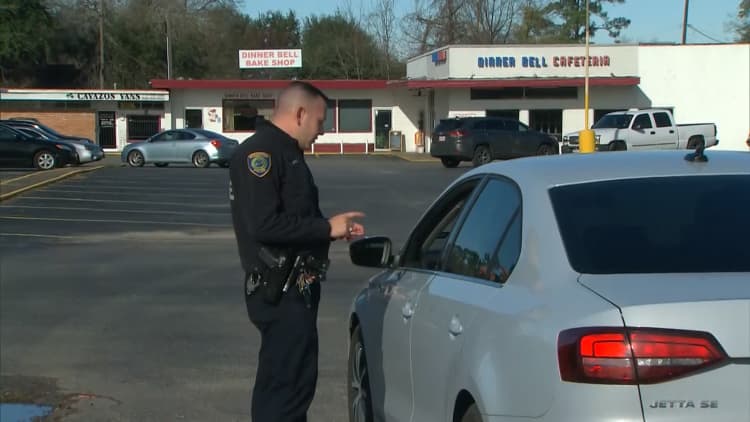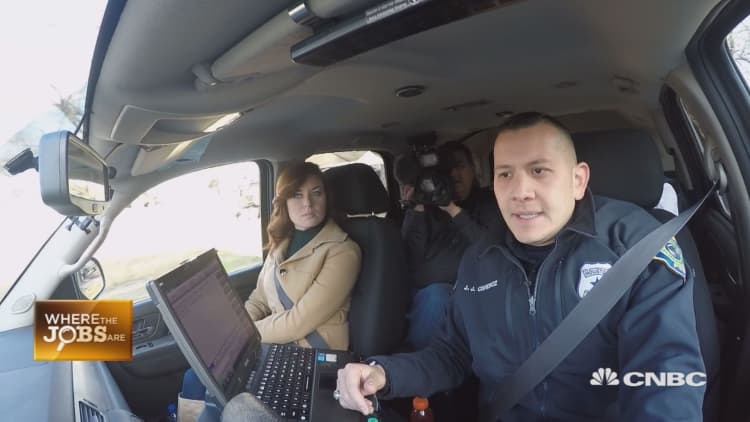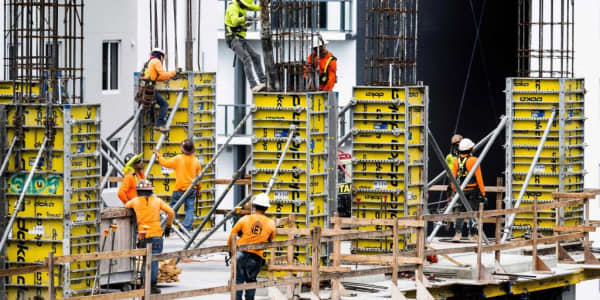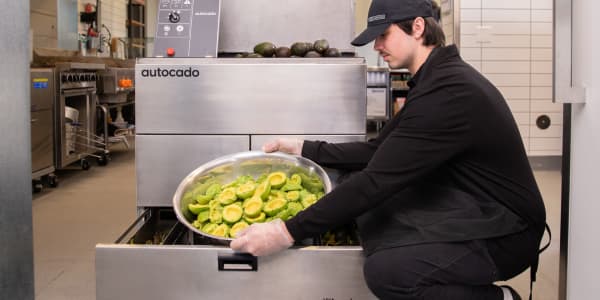
Jason Cisneroz has long felt a call to serve. After 9/11, he enlisted in the Army Reserves to do his part to help protect the country.
Eight years ago, he decided to answer that same call in his hometown, joining the Houston Police Department as an officer. His love for community is evident in the way he patrols — watchful, friendly, hopeful.
"You've got to go an extra step, shake a hand, say 'good morning,'" Cisneroz said. "That goes a long way."
But the 35-year-old Cisneroz and his fellow officers are strained by working in a department that says it's short as many as 2,000 officers in the nation's fourth-largest city.
"It can be overwhelming, because you want to do your part and do what you can, but you're only one person. You have to take the calls at priority level. That's all you can do," Cisneroz said.
Police Chief Art Acevedo said the department has 5,170 officers serving some 2.4 million people, and needs some 350 new officers per year to maintain that number due to attrition.
But Houston's cap on property-tax revenues has pinched the police department hiring and overtime, stretching the existing officers far too thin.
Acevedo points to Chicago, which is less than half the geographic size of Houston but operates a force of 12,500 officers.
"We've changed the way we deploy people, we've changed the way we investigate violent crime, … but at the end of the day when you're 1,500 to 2,000 officers short, you can only squeeze so much from a lemon," Acevedo said.
A growing shortage
Nationwide, there are 18,000 law enforcement agencies with some 840,000 officers, according to the International Association of Chiefs of Police. But a growing shortage of manpower extends beyond Houston: It includes Atlanta; San Jose, California; and Hartford, Connecticut; as well as rural locations around the country. State and local budget constraints, along with retirements, are weighing heavily on departments.

A stronger economy has also led to fewer new hires and recruits. Officers make an average salary of around $60,000 annually and the job outlook for the profession is set to grow some 7 percent through 2026, according to the Bureau of Labor Statistics. But in many cases, private sector employment can offer higher pay and more flexibility.
"Recruitment is always correspondingly more difficult when the economy is thriving because of the nature of the benefits and pay the private sector can offer," said Louis Dekmar, president of the police chiefs' association. "The nature of policing is that we've got to have people here prepared to serve 24 hours a day."
In Houston, Mayor Sylvester Turner signed a pledge Wednesday along with City Council members to add 500 officers over the next five years. The number is short of what the department projects it needs but is still welcome news.
"Being an efficient organization is that much more important when you lack your No. 1 commodity — the one thing you need — and that's people," Acevedo said.
The 'Ferguson Effect'
Another significant issue in police recruiting for some departments is a lack of trust and interest due to high-profile police-involved shootings around the country in recent years, Dekmar and Acevedo said.
"It's what's been characterized as the 'Ferguson Effect,'" Dekmar said, referring to the Missouri town that was wracked by riots after the fatal shooting of an 18-year-old African-American by a white police officer. "There's been a challenge and reluctance in minority communities, where there are trust issues with the police, to become involved in terms of a career with the police. Those are challenges that tend to be individual to those communities."
To entice potential recruits, some departments are offering incentives like tuition reimbursement, signing bonuses and in some cases, even retooling drug-use policies in order to avoid disqualifying candidates who had "exercised poor judgment" in their youth, Dekmar said.
Acevedo said the HPD is offering shortened academy training for those with prior experience, and partnering with the military, high schools and colleges to recruit strategically. He insists the department is not lowering its standards because of the shortage, noting that only some 10 percent of applicants make the final cut.
Officers like Cisneroz are also taking matters into their own hands, working in the community to foster relationships with minority residents in particular. His hope is that they'll be inspired to join the force.
"It may be optimistic to say, but be the change you want to see. If you think things could be different, come on and join the ranks — come ride with me and be a police officer," he said.





